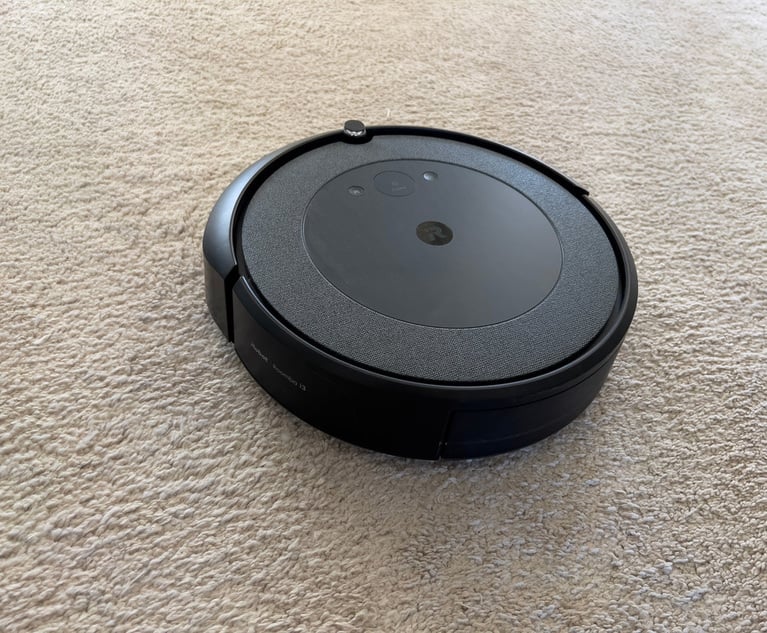Do You Really Need to Store That IoT Data?
Not only are companies collecting a massive amount of data generated by the Internet of Things (IoT), they are storing it too. According to a survey of 1,000 enterprises conducted by 451 Research, 71 percent of enterprises are gathering IoT data and nearly half of the data generated are being stored. What the survey doesn't reveal is if companies are considering the legal implications of storing IoT data and preparing to deal with demands for that data from outside entities.
August 03, 2017 at 11:45 AM
4 minute read
Not only are companies collecting a massive amount of data generated by the Internet of Things (IoT), they are storing it too. According to a survey of 1,000 enterprises conducted by 451 Research, 71 percent of enterprises are gathering IoT data and nearly half of the data generated are being stored. What the survey doesn't reveal is if companies are considering the legal implications of storing IoT data and preparing to deal with demands for that data from outside entities.
Some contend that the IoT is on the brink of changing life as we know it. According to Gartner, 20.8 billion objects will be connected to the internet by 2020. On their own, droves of these data-generating things will churn out an inconceivable amount of intriguing data about our patterns of behaviors. And, when they begin talking to each other, the IoT will be as prevalent as oxygen.
With the IoT's capability to fade into the background of our lives and quietly play witness to our worlds, the data it generates will pique the interest of a parade of public and private third parties that we can only begin to imagine, but that's exactly what general counsel need to do. Sit down with business executives who are spearheading IoT projects and talk about the near-future risks associated with storing IoT data, prepare to respond with requests for IoT data and think about the impact to consumers.
This content has been archived. It is available through our partners, LexisNexis® and Bloomberg Law.
To view this content, please continue to their sites.
Not a Lexis Subscriber?
Subscribe Now
Not a Bloomberg Law Subscriber?
Subscribe Now
NOT FOR REPRINT
© 2025 ALM Global, LLC, All Rights Reserved. Request academic re-use from www.copyright.com. All other uses, submit a request to [email protected]. For more information visit Asset & Logo Licensing.
You Might Like
View All
Private Equity-Backed Medical Imaging Chain Hires CLO, Continuing C-Suite Makeover


Apple GC’s Compensation Flat Again in 2024, but She Might Snag No. 1 Spot on Top-Paid List Anyway

Trending Stories
- 1Lessons From Five Popular Change Management Concepts: A Guide for Law Firm Leaders in 2025
- 2People in the News—Jan. 15, 2025—Ballard Spahr, Brahin Law
- 3How I Made Office Managing Partner: 'Stay Focused on Building Strong Relationships,' Says Joseph Yaffe of Skadden
- 4Snapshot Judgement: The Case Against Illustrated Indictments
- 5Texas Supreme Court Grapples Over Fifth Circuit Question on State Usury Law
Who Got The Work
J. Brugh Lower of Gibbons has entered an appearance for industrial equipment supplier Devco Corporation in a pending trademark infringement lawsuit. The suit, accusing the defendant of selling knock-off Graco products, was filed Dec. 18 in New Jersey District Court by Rivkin Radler on behalf of Graco Inc. and Graco Minnesota. The case, assigned to U.S. District Judge Zahid N. Quraishi, is 3:24-cv-11294, Graco Inc. et al v. Devco Corporation.
Who Got The Work
Rebecca Maller-Stein and Kent A. Yalowitz of Arnold & Porter Kaye Scholer have entered their appearances for Hanaco Venture Capital and its executives, Lior Prosor and David Frankel, in a pending securities lawsuit. The action, filed on Dec. 24 in New York Southern District Court by Zell, Aron & Co. on behalf of Goldeneye Advisors, accuses the defendants of negligently and fraudulently managing the plaintiff's $1 million investment. The case, assigned to U.S. District Judge Vernon S. Broderick, is 1:24-cv-09918, Goldeneye Advisors, LLC v. Hanaco Venture Capital, Ltd. et al.
Who Got The Work
Attorneys from A&O Shearman has stepped in as defense counsel for Toronto-Dominion Bank and other defendants in a pending securities class action. The suit, filed Dec. 11 in New York Southern District Court by Bleichmar Fonti & Auld, accuses the defendants of concealing the bank's 'pervasive' deficiencies in regards to its compliance with the Bank Secrecy Act and the quality of its anti-money laundering controls. The case, assigned to U.S. District Judge Arun Subramanian, is 1:24-cv-09445, Gonzalez v. The Toronto-Dominion Bank et al.
Who Got The Work
Crown Castle International, a Pennsylvania company providing shared communications infrastructure, has turned to Luke D. Wolf of Gordon Rees Scully Mansukhani to fend off a pending breach-of-contract lawsuit. The court action, filed Nov. 25 in Michigan Eastern District Court by Hooper Hathaway PC on behalf of The Town Residences LLC, accuses Crown Castle of failing to transfer approximately $30,000 in utility payments from T-Mobile in breach of a roof-top lease and assignment agreement. The case, assigned to U.S. District Judge Susan K. Declercq, is 2:24-cv-13131, The Town Residences LLC v. T-Mobile US, Inc. et al.
Who Got The Work
Wilfred P. Coronato and Daniel M. Schwartz of McCarter & English have stepped in as defense counsel to Electrolux Home Products Inc. in a pending product liability lawsuit. The court action, filed Nov. 26 in New York Eastern District Court by Poulos Lopiccolo PC and Nagel Rice LLP on behalf of David Stern, alleges that the defendant's refrigerators’ drawers and shelving repeatedly break and fall apart within months after purchase. The case, assigned to U.S. District Judge Joan M. Azrack, is 2:24-cv-08204, Stern v. Electrolux Home Products, Inc.
Featured Firms
Law Offices of Gary Martin Hays & Associates, P.C.
(470) 294-1674
Law Offices of Mark E. Salomone
(857) 444-6468
Smith & Hassler
(713) 739-1250






